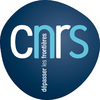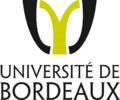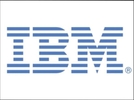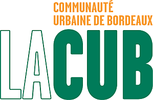The Meeting
Conference Program
Wednesday, August 31st
09:30-10:00, Conference Opening
Room: Deniges
10:00-11:00, Keynote 1
Chair: Raymond Namyst Room: Deniges
Pete Beckman - Argonne National Laboratory and the University
of Chicago
Facts and Speculations on Exascale: Revolution or Evolution?
For the last two years scientists have been planning for the immense
challenges of moving to the exascale era. Some profound changes will
be required to reach exascale. Key design issues will include a
massive intranode parallelism, power management, advanced run-time
systems, and fault management. From the programming model to the
system software, shift is happening. This talk will explore the
future needs of exascale software and how programmers will adapt to
the new models.
11:30-13:00, Session A1 -
High Performance and Scientific Applications - Performance Prediction and Evaluation
Chair: Jacob Barhen Room: Pitres
- The LOFAR Beam Former: Implementation and Performance Analysis Jan David Mol (Astron, The Netherlands); John Romein (ASTRON, The Netherlands)
- Reducing Energy Usage with Memory and Computation-Aware Dynamic Frequency Scaling Michael Laurenzano (San Diego Supercomputer Center, USA); Mitesh Meswani (San Diego Supercomputer Center, USA); Laura Carrington (San Diego Supercomputer Center, USA); Allan Snavely (University of California, San Diego, USA); Mustafa Tikir (Google, USA); Stephen W. Poole (Oak Ridge National Laboratory, USA)
- Using the Last-mile Model as a Distributed Scheme for Available Bandwidth Prediction Lionel Eyraud-Dubois (INRIA Bordeaux Sud-Ouest, France); Olivier Beaumont (INRIA, France); Young J Won (INRIA, France)
11:30-13:00, Session A2 -
Scheduling and Load Balancing
Chair: Leonel Sousa Room: Gintrac
- A Dynamic Power-Aware Partitioner with Task Migration for Multicore Embedded Systems José Luis March (Universitat Politècnica de València, Spain); Julio Sahuquillo (Universidad Politecnica de Valencia, Spain); Salvador Petit (Polythecnic University of Valencia, Spain); Houcine Hassan (Universidad Politecnica de Valencia, Spain); Jose Duato (Universidad Politecnica de Valencia, Spain)
- On the Utility of DVFS for Power-Aware Job Placement in Clusters Jean-Marc Pierson (Univerty Paul Sabatier, Toulouse, France); Henri Casanova (University of Hawaii at Manoa, USA)
- Work stealing for Multi-core HPC Clusters Kaushik Ravichandran (Georgia Institute of Technology, USA); Sangho Lee (Georgia Institute of Technology, USA); Santosh Pande (Georgia Institute of Technology, USA)
11:30-13:00, Session A3 -
Grid Cluster and Cloud Computing
Chair: Radu Prodan Room: Denucé
- DEVA: Distributed Ensembles of Virtual Appliances in the Cloud David Villegas (Florida International University, USA); Seyed Masoud Sadjadi (Florida International University, USA)
- Enacting SLAs in Clouds Using Rules Michael Maurer (Vienna University of Technology, Austria); Ivona Brandic (Vienna University of Technology, Austria); Rizos Sakellariou (University of Manchester, United Kingdom)
- Green Cloud Framework For Improving Carbon Efficiency of Clouds Saurabh Kumar Garg (The University of Melbourne, Australia); Chee Shin Yeo (Institute of High Performance Computing, Singapore)
11:30-13:00, Session A4 -
High-Performance Architecture and Compilers
Chair: Denis Barthou Room: Fabre
- FELI: HW/SW support for On-Chip Distributed Shared Memory in Multicores Carlos Villavieja (Universitat Politecnica de Catalunya, Spain); Yoav Etsion (BSC, Spain); Alex Ramirez (UPC, Barcelona, Spain); Nacho Navarro (Universitat Politecnica de Catalunya, Spain)
- Filtering directory lookups in CMPs with write-through caches Ana Bosque (UPC, Spain); Victor Viñals (University of Zaragoza, Spain); Pablo Ibañez (University of Zaragoza, Spain); Jose Maria Llaberia (Universidad Politecnica de Cataluña, Spain)
- Token3D: Reducing Temperature in 3D die-stacked CMPs through Cycle-level Power Control Mechanisms Juan M. Cebrián (University of Murcia, Spain); Juan L. Aragón (University of Murcia, Spain); Stefanos Kaxiras (University of Patras, Greece)
14:30-16:00, Session B1 -
Support Tools and Environments
Chair: Rosa Badia Room: Pitres
- Accelerating Data Race Detection with Minimal Hardware Support Rodrigo Gonzalez-Alberquilla (Universidad Complutense de Madrid, Spain); Karin Strauss (Microsoft Research, USA); Luis Ceze (University of Washington, USA); Luis Piñuel (Complutense University of Madrid, Spain)
- Exploiting Cache Traffic Monitoring for Run-Time Race Detection Jochen Schimmel (Karlsruhe Institute of Technology, Germany); Victor Pankratius (University of Karlsruhe - KIT, Germany)
- Run-Time Automatic Performance Tuning for Multicore Applications Thomas Karcher (Karlsruhe Institute of Technology, Germany); Victor Pankratius (University of Karlsruhe - KIT, Germany)
14:30-16:00, Session B2 -
Scheduling and Load Balancing
Chair: Frédéric Suter Room: Gintrac
- Workload balancing and throughput optimization for heterogeneous systems subject to failures Anne Benoit (ENS Lyon, France); Alexandru Dobrila (Université de Franche-Comté, France); Jean-Marc Nicod (LIFC - Universite de Franche-Comte, France); Laurent Philippe (Universite de franche-comte, France)
- Assessing the Computational Benefits of AREA-Oriented DAG-Scheduling Gennaro Cordasco (Seconda Università di Napoli, Italy); Rosario De Chiara (University of Salerno, Italy); Arnold L. Rosenberg (Colorado State University, USA)
- Greedy "exploitation" is close to optimal on node-heterogeneous clusters Arnold L. Rosenberg (Colorado State University, USA)
14:30-16:00, Session B3 -
High Performance and Scientific Applications
Chair: Esmond G. Ng Room: Denucé
- Application-Specific Fault Tolerance Via Data Access Characterization Nawab Ali (Pacific Northwest National Laboratory, USA); Sriram Krishnamoorthy (Pacific Northwest National Laboratory, USA); Niranjan Govind (Pacific Northwest National Laboratory, USA); Karol Kowalski (Pacific Northwest National Lab, USA); Ponnuswamy Sadayappan (Ohio State University, USA)
- Parallel Monte-Carlo Tree Search for HPC Systems Lars Schaefers (University of Paderborn, Germany); Tobias Graf (University of Paderborn, Germany); Marco Platzner (University of Paderborn, Germany); Ulf Lorenz (Technical University Darmstadt, Germany)
- Petascale Block-Structured AMR Applications Without Distributed Meta-data Brian Van Straalen (Lawrence Berkeley National Laboratory, USA); Phil Colella (Lawrence Berkeley National Laboratory, USA); Daniel Graves (Lawrence Berkeley National Laboratory, USA); Noel Keen (Lawrence Berkeley National Laboratory, USA)
14:30-16:00, Session B4 -
High-Performance Architecture and Compilers
Chair: Taisuke BOKU Room: Fabre
- Bandwidth Constrained Coordinated HW/SW Prefetching For Multicores Sai Prashanth Muralidhara (Pennsylvania State University, USA); Mahmut Taylan Kandemir (Penn State University, USA); Yuanrui Zhang (Pennsylvania State University, USA)
- Unified Locality-sensitive Signatures for Transactional Memory Ricardo Quislant (University of Malaga, Spain); Eladio D Gutierrez (University of Malaga, Spain); Oscar Plata (University of Malaga, Spain); Emilio Zapata (University of Malaga, Spain)
- Using runtime activity to dynamically filter out inefficient data prefetches Oussama Gamoudi (Université de Pierre et Marie Currie, France); Nathalie Drach (Université de Pierre et Marie Currie, France); Karine Heydemann (Université de Pierre et Marie Currie, France)
16:30-18:00, Session C1 -
Support Tools and Environments
Chair: Emmanuel Agullo Room: Pitres
- Event log mining tool for large scale HPC systems Ana Gainaru (Politehnica University of Bucharest, Romania); Franck Cappello (INRIA and University of Illinois at Urbana Champaign, France); Wiliam Kramer (National Center for Supercomputing Applications, UIUC, USA); Stefan Trausan-Matu (University Politehnica of Bucharest, Romania)
- Quantifying the potential task-based dataflow parallelism in MPI applications Vladimir Subotic (Barcelona Supercomputing Center, Spain); Jose Carlos Sancho (Barcelona Supercomputing Center, Spain); Jesús Labarta (Barcelona Supercomputing Center, Spain); Mateo Valero (Technical University of Catalonia, Spain)
- Reducing the overhead of direct application instrumentation using prior static analysis Jan Mußler (Jülich Supercomputing Centre, Germany); Daniel Lorenz (Jülich Supercomputing Centre, Germany); Felix Wolf (German Research School for Simulation Sciences, Germany)
16:30-18:00, Session C2 -
High Performance and Scientific Applications
Chair: Kengo Nakajima Room: Gintrac
- CRSD: Application Specific Auto-tuning of SpMV for Diagonal Sparse Matrices Xiangzheng Sun (ISCAS, P.R. China); Yunquan Zhang (ISCAS, P.R. China); Ting Wang (ISCAS, P.R. China); Guoping Long (ISCAS, P.R. China); Xianyi Zhang (ISCAS, P.R. China); Yan Li (ISCAS, P.R. China)
- Real Time Contingency Analysis for Power Grids Anshul Mittal (IBM Research, India); Jagabondhu Hazra (IBM Research - India, India); Nikhil Jain (UIUC, USA); Vivek Goyal (IIT Delhi, India); Deva Seetharam (IBM Research - India, India); Yogish Sabharwal (IBM Research - India, India)
- Accelerating Anisotropic Mesh Adaptivity on nVIDIA's CUDA Using Texture Interpolation Georgios Rokos (Imperial College London, United Kingdom); Gerard Gorman (Imperial College London, United Kingdom); Paul H J Kelly (Imperial College London, United Kingdom)
16:30-18:00, Session C3 -
Theory and Algorithms for Parallel Computation
Chair: Frédéric Vivien Room: Denucé
- A Bi-Objective Scheduling Algorithm for Desktop Grids with Uncertain Resource Availabilities Louis-Claude Canon (University of Grenoble, France); Adel Essafi (University of Grenoble, France); Gregory Mounié (Institut National Politechnique de Grenoble, France); Denis Trystram (University of Grenoble, France)
- New Multithreaded Ordering and Coloring Algorithms for Multicore Architectures Md. Mostofa Ali Patwary (University of Bergen, Norway); Assefaw Gebremedhin (Purdue University, USA); Alex Pothen (Purdue University, USA)
- Petri-nets as an Intermediate Representation for Heterogeneous Architectures Peter Calvert (University of Cambridge, United Kingdom); Alan Mycroft (University of Cambridge, United Kingdom)
16:30-18:00, Session C4 -
Grid Cluster and Cloud Computing
Chair: Emmanuel Jeannot Room: Fabre
- Maximum migration time guarantees in dynamic server consolidation for virtualized data centers Tiago Ferreto (Pontifícia Universidade Católica do Rio Grande do Sul, Brazil); César A. F. De Rose (PUCRS, Brazil); H.-u. Heiss (Technical University Berlin, Germany)
- Self-Economy in Cloud Data Centers: Statistical Assignment and Migration of Virtual Machines Carlo Mastroianni (CNR-ICAR, Italy); Michela Meo (Politecnico di Torino, Italy); Giuseppe Papuzzo (CNR-ICAR, Italy)
- Shrinker: Improving Live Migration of Virtual Clusters over WANs with Distributed Data Deduplication and Content-Based Addressing Pierre Riteau (Université de Rennes 1, France); Christine Morin (INRIA, France); Thierry Priol (Inria, France)
Thursday, September 1st
9:30-10:30, Keynote 2
Chair: Jean Roman Room: Deniges
Alessandro Curioni - IBM, Zurich Research Laboratory, Switzerland
New Scalability frontiers in ab-initio Molecular Dynamics
First-principles-based molecular simulations nowadays are key tools
for scientific discovery, and their impact on innovation and
technology is increasing constantly.
In this presentation, I will give an overview of the work we have done
in the past decade to extend the applicability of ab-initio Molecular
Dynamics simulations by means of algorithm re-engineering and their
proper mapping to massively parallel machines. Moreover, successful
applications as well as the challenges and opportunities of exascale
computing will be discussed.
11:00-13:00, Session D1 -
GPU and Accelerators Computing
Chair: Samuel Thibault Room: Pitres
- Automatic OpenCL Device Characterization: Guiding Optimized Kernel Design Peter Thoman (University of Innsbruck, Austria)
- Iterative Sparse Matrix-Vector Multiplication for Integer Factorization on GPUs Bertil Schmidt (Nanyang Technological University, Singapore); Hans Aribowo (Nanyang Technological University, Singapore); Hoang-Vu Dang (NTU, Singapore)
- Lessons Learned from Exploring the Backtracking Paradigm on the GPU John Jenkins (North Carolina State University, USA); Isha Arkatkar (North Carolina State University, USA); John D. Owens (University of California, Davis, USA); Alok Choudhary (Northwestern University, USA); Nagiza Samatova (North Carolina State University, USA)
- Model-Driven Tile Size Selection for DOACROSS Loops on GPUs Peng Di (University of New South Wales, Australia); Jingling Xue (University of New South Wales, Australia)
11:00-13:00, Session D2 -
Parallel and Distributed Programming
Chair: Pierre Manneback Room: Gintrac
- A Failure Detector for Wireless Networks with Unknown Membership Fabíola Gonçalves Pereira Greve (Federal University of Bahia, Brazil); Pierre Sens (Université de Paris 6, France); Luciana Arantes (Université Paris 6, France); Véronique Simon (UPMC, France)
- HOMPI: A Hybrid Programming Framework for Expressing and Deploying Task-Based Parallelism Vassilios V. Dimakopoulos (University of Ioannina, Greece); Panagiotis E Hadjidoukas (University of Ioannina, Greece)
- Parallel Scanning with Bitstream Addition: An XML Case Study Robert D Cameron (Simon Fraser University, Canada); Ehsan Amiri (IBM, Canada); Kenneth Herdy (Simon Fraser University, Canada); Dan Lin (Simon Fraser University, Canada); Thomas Shermer (Simon Fraser University, Canada); Fred Popowich (Simon Fraser University, Canada)
- Towards Systematic Parallel Programming over MapReduce Yu Liu (The Graduate University for Advanced Studies, Japan); Zhenjiang Hu (National Institute of Informatics, Japan); Kiminori Matsuzaki (Kochi University of Technology, Japan)
11:00-13:00, Session D3 -
Peer to Peer Computing - Mobile and Ubiquitous Computing
Chair: Olivier Beaumont Room: Denucé
- Asynchronous Peer-to-peer Data Mining with Stochastic Gradient Descent Róbert Ormándi (University of Szeged, Hungary); István Hegedűs (University of Szeged, Hungary); Mark Jelasity (University of Szeged and HAS, Hungary)
- ChurnDetect: Gossip-based Churn Estimator for Large-Scale Dynamic Networks Andrei Pruteanu (Delft University of Technology, The Netherlands); Venkat Iyer (Delft University of Technology, The Netherlands); Stefan Dulman (Delft University of Technology, The Netherlands)
- Evaluation of P2P Systems Under Different Churn Models: Why Should We Bother? Marc Sánchez-Artigas (Universitat Rovira i Virgili, Spain); Enrique Fernández-Casado (Universitat Rovira i Virgili, Spain)
- FEW Phone File System: Proving Ubiquitous Access to the User's Data João Soares (CITI - DI/FCT/Universidade Nova de Lisboa, Portugal); Nuno Preguiça (CITI / DI - FCT - Universidade Nova de Lisboa, Portugal)
14:30-16:00, Session E1 -
Parallel Numerical Algorithms - High Performance and Scientific Applications
Chair: Daniela di Serafino Room: Pitres
- A Bit-Compatible Parallelization for ILU(k) Preconditioning Xin Dong (Northeastern University, USA); Gene Cooperman (Northeastern University, USA)
- High-performance numerical optimization on multicore clusters Panagiotis E Hadjidoukas (University of Ioannina, Greece); Constantinos Voglis (University of Ioannina, Greece); Vassilios V. Dimakopoulos (University of Ioannina, Greece); Isaac Lagaris (University of Ioannina, Greece); Dimitris Papageorgiou (University of Ioannina, Greece)
- Parallel Inexact Constraint Preconditioners for Saddle Point problems Luca Bergamaschi (University of Padova, Italy); Angeles Martinez (University of Padova, Italy)
14:30-16:00, Session E2 -
Grid Cluster and Cloud Computing
Chair: Frédéric Desprez Room: Gintrac
- An adaptive CA-based Load Balancing Algorithm for Computational Grid Systems Laleh Rostami Hosoori (Islamic Azad University, Science and Research Branch, Iran); Amir Masoud Rahmani (Science and Research Branch, Islamic Azad University Tehran, Iran)
- Benchmarking Grid Information Systems Laurence Field (CERN, Switzerland); Rizos Sakellariou (University of Manchester, United Kingdom)
- Optimizing multi-deployment on clouds by means of self-adaptive prefetching Bogdan Nicolae (INRIA, USA); Franck Cappello (INRIA and University of Illinois at Urbana Champaign, France); Gabriel Antoniu (INRIA Rennes - Bretagne Atlantique, France)
14:30-16:00, Session E3 -
Multicore and Manycore Programming
Chair: Herbert Cornelius Room: Denucé
- Accelerating code on multi-cores with FastFlow Marco Aldinucci (University of Torino, Italy); Marco Danelutto (University of Pisa, Italy); Peter Kilpatrick (Queen's University of Belfast, United Kingdom); Massimiliano Meneghin (IBM Technology Campus, Ireland); Massimo Torquati (University of Pisa, Italy)
- Engineering a Multi-Core Radix Sort Jan Wassenberg (Fraunhofer IOSB, Germany); Peter Sanders (Karlsruhe Institute of Technology, Germany)
- Fully Empirical Autotuned Dense QR Factorization For Multicore Architectures Emmanuel Agullo (INRIA / LaBRI, France); Jack Dongarra (University of Tennessee, Knoxville, USA); Rajib Nath (University of California, San Diego, USA); Stanimire Tomov (University of Tennessee, USA)
Chair: Emmanuel Jeannot Room: Deniges
- Compressing the Incompressible with ISABELA: In-situ Reduction of Spatio-Temporal Data Sriram Lakshminarasimhan (North Carolina State University, USA); Neil Shah (North Carolina State University, USA); Stephane Ethier (PPPL, USA); Scott Klasky (Oak Ridge National Laboratory, USA); Rob Latham (Argonne national lab, USA); Robert Ross (Argonne National Laboratory, USA); Nagiza F. Samatova (Oak Ridge National Laboratory, USA)
- Correlated Set Coordination in Fault Tolerant Message Logging Protocols Aurelien Bouteiller (University of Tennessee Knoxville, USA); Thomas Herault (University of Tennessee, USA); George Bosilca (The University of Tennessee, USA); Jack Dongarra (University of Tennessee, Knoxville, USA)
- Communication-optimal parallel 2.5D matrix multiplication and LU factorization algorithms Edgar Solomonik (University of California at Berkeley, USA); James Demmel (University of California at Berkeley, USA)
Friday, September 2nd
9:30-11:00, Session F1 -
Multicore and Manycore Programming
Chair: Guillaume Mercier Room: Pitres
- A Generic Parallel Collection Framework Aleksandar Prokopec (EPFL, Switzerland); Phil Bagwell (EPFL, Switzerland); Martin Odersky (EPFL, Switzerland); Tiark Rompf (EPFL, Switzerland)
- Hardware and Software Tradeoffs for Task Synchronization on Manycore Architectures Yonghong Yan (Rice University, USA); Sanjay Chatterjee (Rice University, USA); Daniel A Orozco (University of Delaware, USA); Elkin Garcia (University of Delaware, USA); Zoran Budimlić (Rice University, USA); Jun Shirako (Rice University, USA); Robert S Pavel (University of Delaware, USA); Guang Gao (University of Delaware, USA); Vivek Sarkar (Rice University, USA)
- OpenMPspy: Leveraging Quality Assurance for Parallel Software Victor Pankratius (University of Karlsruhe - KIT, Germany); Fabian Knittel (Karlsruhe Institute of Technology, Germany); Leonard Masing (University of Karlsruhe, Germany); Martin Walser (Karlsruhe Institute of Technology, Germany)
9:30-11:00, Session F2 -
Scheduling and Load Balancing
Chair: Frédéric Suter Room: Gintrac
- Exploiting Thread-Data Affinity In OpenMP with Data Access Patterns Andrea Di Biagio (Politecnico di Milano, Italy); Ettore Speziale (Politecnico di Milano, Italy); Giovanni Agosta (Politecnico di Milano, Italy)
- Scheduling JavaSymphony Applications on Many-core Parallel Computers Muhammad Aleem (University of Innsbruck, Austria); Radu Prodan (University of Innsbruck, Austria); Thomas Fahringer (University of Innsbruck, Austria)
- Analysis and Modeling of Social Influence in High Performance Computing Workloads Shuai Zheng (King Abdullah University of Science and Technology, Saudi Arabia); Zon-yin Shae (IBM T. J. Watson Research Center, USA); Xiangliang Zhang (King Abdullah University of Science, Saudi Arabia); Hani Jamjoom (T.J. Watson Research Center, USA); Liana L Fong (IBM TJ Watson Research Center, USA)
9:30-11:00, Session F3 -
Performance Prediction and Evaluation
Chair: Shirley Moore Room: Denucé
- Backfilling with guarantees granted upon job submission Alexander Lindsay (Ibaset, USA); Maxwell Galloway-Carson (Knox College, USA); Christopher Johnson (Knox College, USA); David P. Bunde (Knox College, USA); Vitus Leung (Sandia National Labs, USA)
- Multilayer Cache Partitioning for Multiprogram Workloads Mahmut Taylan Kandemir (Penn State University, USA); Ramya Prabhakar (Penn State University, USA); Mustafa Karakoy (Medisec, United Kingdom); Yuanrui Zhang (Pennsylvania State University, USA)
- Self-stabilization versus Robust Self-stabilization for clustering in Ad-hoc network Colette Johnen (University of Bordeaux, France); Fouzi Mekhaldi (LRI, University of Paris Sud, France)
9:30-11:00, Session F4 -
Networking
Chair: Brice Goglin Room: Fabre
- A contention-aware performance model for HPC-based networks: A case study of the InfiniBand network Maxime Martinasso (Laboratoire LIG, University of Grenoble, France); Jean-François Méhaut (Grenoble University, France)
- A High Performance Superpipeline Protocol for InfiniBand Alexandre Denis (INRIA, France)
- Kernel-Based Offload of Collective Operations - Implementation, Evaluation and Lessons Learned Timo Schneider (Indiana University, Germany); Sven Eckelmann (Chemnitz University of Technology, Germany); Torsten Hoefler (University of Illinois at Urbana-Champaign, USA); Wolfgang Rehm (Chemnitz University of Technology, Germany)
11:30-13:00, Session G1 -
Multicore and Manycore Programming
Chair: Olivier Aumage Room: Pitres
- A Novel Shared-Memory Thread-Pool Implementation for Hybrid Parallel CFD Solvers Jens Jaegerskuepper (German Aerospace Center, Germany); Christian Simmendinger (T-Systems SfR, Germany)
- Parallelizing a Real-Time Physics Engine Using Transactional Memory Jaswanth Sreeram (Georgia Institute of Technology, USA); Santosh Pande (Georgia Institute of Technology, USA)
- Progress Guarantees when Composing Lock-free Objects Nhan Nguyen (Chalmers University of Technology, Sweden); Philippas Tsigas (Chalmers University of Technology, Sweden)
11:30-13:00, Session G2 -
Parallel and Distributed Data Management
Chair: Maria Perez-Hernandez Room: Gintrac
- An Evaluation of Fault-Tolerant Query Processing for Web Search Engines Mauricio Marin (Yahoo! Research, Santiago, University of Chile, Chile); Carlos Gómez-Pantoja (Yahoo! Research, Santiago, Chile); Graciela Veronica Gil-Costa (DCC, University of San Luis, Argentina)
- kNN Query Processing in Metric Spaces using GPUs Ricardo Barrientos (Complutense University of Madrid, Spain); Jose Gómez (Complutense University of Madrid, Spain); Christian Tenllado (Complutense University of Madrid, Spain); Manuel Prieto Matias (Complutense University of Madrid, Spain); Mauricio Marin (Yahoo! Research, Santiago, University of Chile, Chile)
- Performance Optimizations for Distributed Collaborative Filtering Ankur Narang (IBM India Research Labs, New Delhi, India); Naga Praveen Kumar Katta (IBM Research India, India); Abhinav Srivastava (IBM Research India, India)
11:30-13:00, Session G3 -
Distributed Systems and Algorithms
Chair: Pierre Sens Room: Denucé
- Object Placement for Cooperative Caches with Bandwidth Constraints UmaMaheswari C Devi (IBM India Research Laboratory, India); Malolan Chetlur (IBM Research - India, India); Shivkumar Kalyanaraman (IBM Research - India, Bangalore, India)
- On the Use of Cluster-Based Partial Message Logging to Improve Fault Tolerance for MPI HPC Applications Thomas Ropars (INRIA, France); Amina Guermouche (University of Paris South 11, France); Bora Ucar (CNRS, France); Esteban Meneses (Costa Rica Institute of Technology, Colombia); Laxmikant V. Kale (University of Illinois at Urbana-Champaign, USA); Franck Cappello (INRIA and University of Illinois at Urbana Champaign, France)
- Productive Cluster Programming with OmpSs Javier Bueno (Universitat Politècnica de Catalunya, Spain); Luis Martinell (Barcelona Supercomputing Center, Spain); Alejandro Duran (Barcelona Supercomputing Center, Spain); Montse Farreras (Universitat Politècnica de Catalunya, Spain); Xavier Martorell (Universitat Politècnica de Catalunya, Spain); Rosa M. Badia (Barcelona Supercomputing Center, Spain); Eduard Ayguade (Universitat Politècnica de Catalunya, Spain); Jesús Labarta (Barcelona Supercomputing Center, Spain)
14:30-15:30, Keynote 3
Chair: Emmanuel Jeannot Room: Deniges
Toni Cortes - Computer Architecture Department (DAC) in the Universitat Politècnica de Catalunya and Barcelona Supercomputing Center, Spain
Why trouble humans? They do not care
Traditionally, HPC has been obtained at a high cost for the users. How many times have you heard, or read, from HPC managers that user training was key to achieve high performance on a HPC system? But think it from the user perspective; did any of the recommendations make any sense to them? How much pain did this training mean to them? How many things did they have to worry about besides their real problem? They cared about a business or science problem that, unfortunately, involved large amounts of data and computation. They did not care about all these other things they had to learn to get their problem solved. Can HPC systems be designed and implemented in a different way where high-performance is achieved by the system and not the user?
Just a couple of thoughts: i) if current systems are complex to use, can you imagine using an exaflop machine? and ii) the iPad2 would have been in the top500 till 1994, could we have though back in 1994 that a machine in the top500 could be as easily used as an iPad2?
15:30-16:00, Conference Closing
Room: Deniges







